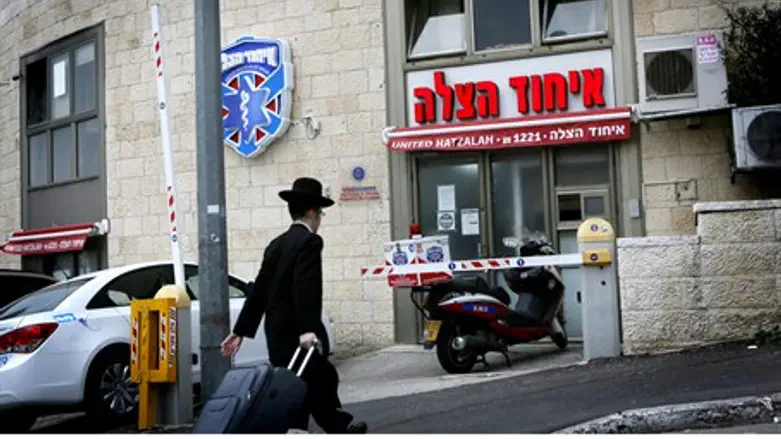
After witnessing a terror attack in Jerusalem as a child, Eli Beer decided that he wanted to be a doctor and help people, the director of United Hatzolah told an audience at a recent TED conference.TED (Technology, Entertainment, Design) conferences are gatherings where innovative ideas, theories and projects are presented to thousands of viewers, both live and on-line. Beer spoke at a recent TEDMed conference, which concentrates on medical issues.
Beer told listeners about how he got into the life-saving business, starting the United Hatzalah rescue service at age 17.
At 15, he took an EMT course and volunteered to help out on an ambulance. “We helped many people, but there many times we could not help. We couldn't reach them in time because of the traffic.”
Once, Beer said, his team got a call to help a child who was choking – but because it took them 20 minutes to get there, the child died.
“A doctor who lived a block away came out when he heard the siren, but when he examined him, the doctor declared the child dead,” said Beer. Had the doctor known before that the child was in trouble, he might have been able to save the child.
“I said to myself there must be a better way,” he said, and from that incident was born United Hatzalah's “ambucycles,” the motorcycles that carry emergency life-saving equipment. Instead of the 20 minutes on average it usually took ambulances to reach emergency cases, the average response time is less than three minutes.
“I'm talking about heart attacks, bomb attacks, or even a woman who falls at home at 3:00 in the morning and needs someone to help her,” he explained.
The success of United Hatzalah, he said, is due to the passion of volunteers, because of the technology used by the volunteers – such as a GPS-based app which alerts volunteers that an emergency is taking place in their area – and because of the ambulcycles, “which are like ambulances on motorcycles."
The ambucycles do not take the place of ambulances, and do not transport patients, but they do allow volunteers to beat the traffic and respond to emergencies within minutes, stabilizing patients until an ambulance can get to the patient's location. “They never get stuck in traffic,” Beer said.
A few years after he started United Hatzalah, Beer began receiving calls from residents of Arab neighborhoods of Jerusalem for help in starting a similar service there. “As far as we're concerned, it's not about saving Jews, or Muslims, or Christians, but about saving people,” he said - and today, United Hatzalah ambucycles ply the streets of Arab neighborhoods of Jerusalem, with Muslim and Jewish volunteers helping each other, and patients, out.
Now, he said, United Hatzalah is exporting its services to places like South America and even India.
“I guess you could call United Hatzalah a life-saving 'flash mob,' and it works.”